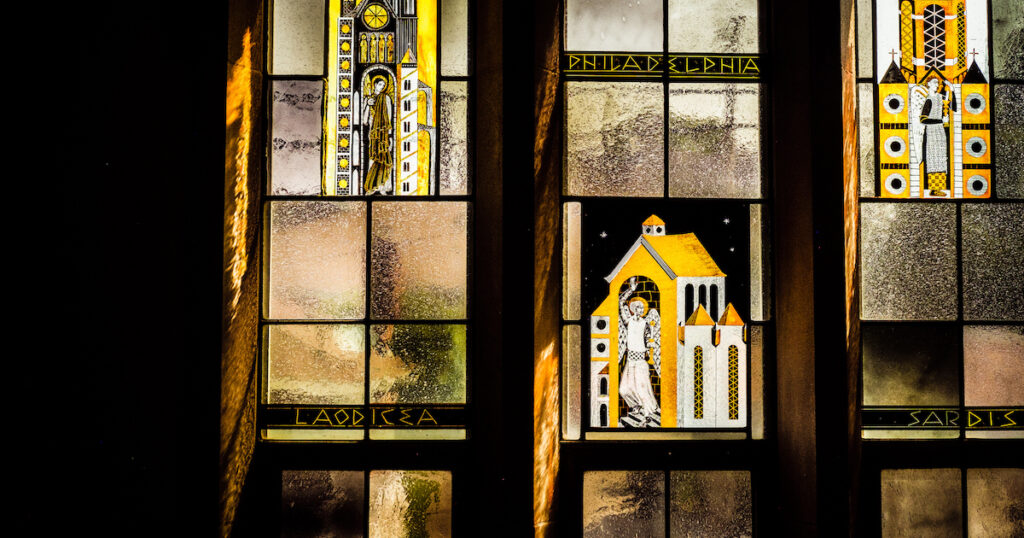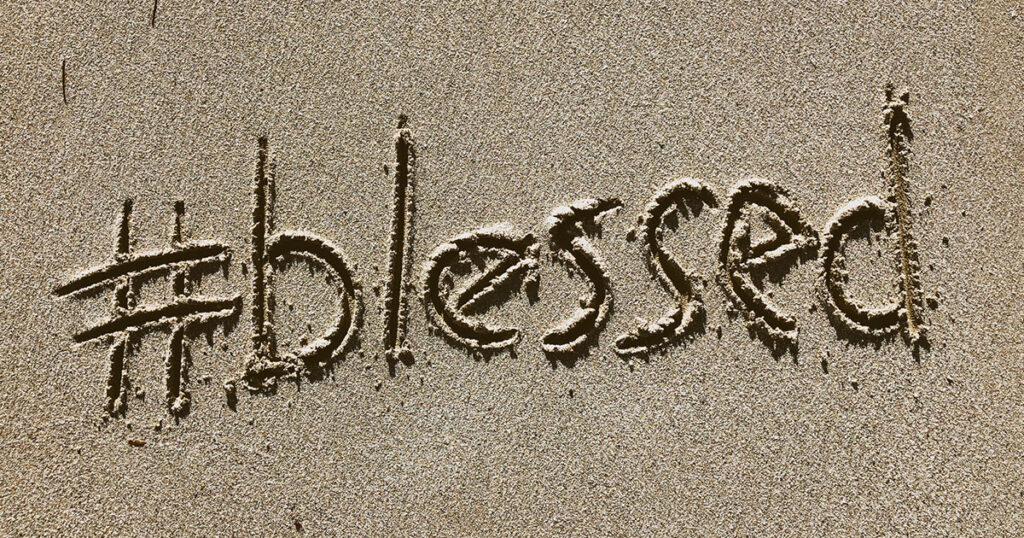Editor’s Note: This article originally appeared in print and is the first in a series of articles by Adam Francisco on the topic of the addressing the “woke” worldview.
In the days before His arrest, Jesus warned His disciples about the Last Day. It will come “suddenly like a trap,” so pray that you have the strength to escape the trials and tribulations that will take place. Be on guard and “stay awake at all times” so that you are not distracted by the things of this world and unsure about your salvation on the day you “stand before the Son of Man” (Luke 21:34–36).
Paul exhorts us to do the same. “The hour has come for you to wake from sleep. For salvation is nearer to us now than when we first believed” (Rom. 13:11). So “wake up from your drunken stupor,” your apathy and indifference, “and do not go on sinning” (1 Cor. 15:34). “‘Awake, O sleeper … and Christ will shine on you.’ Look carefully then how you walk, not as unwise but as wise, making the best use of the time, because the days are evil. Therefore do not be foolish, but understand what the will of the Lord is. … Be filled with the Spirit” (Eph. 5:14–18).
This is what it is, in the biblical sense, to be awake. Our culture tells us there is another way. It is to be woke, to be aware of oppression and injustice and to work for social justice.
The word “woke,” which has become commonplace over the last decade, has an interesting history. Originally, it was used as a warning in African American culture. “Stay woke and keep your eyes open” when you are traveling through racist regions of the south, advised musician Huddie “Lead Belly” Ledbetter (1888–1949) in the first recorded use of the phrase. A few decades later, in the ’60s and ’70s, “woke” was used to describe being conscious of the cause of black nationalism — a social philosophy with roots going back to Marcus Garvey (1887–1940), who called for people of African descent to wake up to their black identity and unite against and resist integration into so-called white America.
The word has evolved again in our own day and age ever since Black Lives Matter used it as a slogan in 2014. “Woke” now means more than just being aware of racial injustice. It has become a slogan for individuals and groups with radical political and social views — and an increasingly common one. The word’s use increased so much that it was considered for the word of the year in 2016, losing out to “post-truth” (an adjective describing the age in which we live), and was added to the dictionary in 2017.
“Woke” now largely refers to a worldview or a lens through which the world is understood. It starts with the assumption that, despite appearances to the contrary, American society is not as free or fair as we think. Our public and private institutions and traditional moral and social norms marginalize those who live and think differently from the majority and thereby creates a class of victims in an oppressive society. Wokeness is driven by the cause of social justice, a modern understanding of justice that assumes all social inequalities (wage gaps, disparities in household incomes, low academic and professional success, and so on) are the result of injustice. Activists address such injustice by working to transform schools, businesses and society at large through the pursuit of equity.
This equity differs from the traditional notion of equal opportunity. It strives for equality of outcomes. This means some individuals or groups will need to be treated differently and given different opportunities to make up for the shortcomings caused by their oppression. This takes planning and political, if not legal, intervention, and it can be accomplished several ways — the redistribution of resources, denying rights and privileges to groups that are considered advantaged, privileging oppressed groups, platforming nontraditional views, and many more. Woke activists see such social engineering as necessary and even just, for equity’s sake.
Behind all of this is an assumption about society and, by extension, all of reality. It is often called social constructivism or relativism. It assumes that the moral, political and religious standards of a society and its subsequent institutions are a mere (and ultimately arbitrary) creation of the people of that society. Older standard and historic institutions may have served society well at one point in time, but there is ultimately nothing objective or necessary about them. Their purpose needs to be reconsidered from the perspective of social justice and, if found problematic or oppressive, replaced as society progresses and adopts different standards and other ways of living.
An example of this is our culture’s understanding of marriage, which was once conceived of as a union between a man and a woman that served as a social good. However, this old view, in a woke line of reasoning, marginalizes homosexual couples. It restricts them from accessing the same rights and privileges as a heterosexual couple and is therefore oppressive. So, since the definition of what constitutes a marriage is but a construct, it can be discarded and replaced by a new one — one that is more inclusive and equitable — that regards heterosexual and homosexual marriage as equal.
All of this may sound quite radical, and indeed it is. Its origins can be traced to revolutionary thinkers of the past — from postmodern and neo-Marxist theorists to American pragmatists like John Dewey and Richard Rorty. However, just because wokeism is radical and revolutionary in nature does not mean it will not become mainstream. In fact, there is good reason to believe that it already has. Wokeism prevails not just in colleges and universities, but pervades much of American culture. Many analysts believe we are living in the midst of a “great awokening.”
The cause of progress in the name of social justice has captured any number of institutions — from the entertainment industry to multinational corporations to the government and even the military. It has even begun to influence the policies and projects of many mainline Christian churches. While this might all seem like a matter that is just political, it has far-reaching ramifications for the church and Christians.
The church will continue to be seen as an old, outdated institution, increasingly viewed from a woke worldview as a chief contributor to the oppressive nature of a society once deeply (albeit far from perfectly) informed by Christianity. Denominational institutions will find themselves in the crosshairs of woke social justice warriors. Christians increasingly will be affected by radical reinterpretations of sex and gender, the purpose of sexuality, and the nature of marriage at our places of employment, among our friends and even in our families.
But as the normalization of what God’s Word clearly identifies as sinful continues apace, we will have more opportunities to speak to and participate in matters concerning equality and justice. We should not shy away from such conversations, but we need to be careful, for the pursuit of social justice and equity in woke culture is informed by assumptions irreconcilable with the Christian worldview. Even though this may all sound daunting, as if we are stuck in a culture war that we are losing, have lost or do not even want to fight, we must remember Jesus’ words: “And behold, I am with you always, to the end of the age” (Matt. 28:20).
God the Holy Spirit calls us to faith and enlightens us with His gifts. It is the Christian, then, who is truly awake to “whatever is true … whatever is just” (Phil. 4:8). It is all in God’s Word. The woke worldview is but a secular attempt — and a misguided one at that — to describe and remedy what can only be prescribed and corrected by the One who creates life and sustains humanity. And so, despite many challenges, we have an opportunity to confess God’s truth before a world that so desperately needs it, beginning with a word of forgiveness for sins and errors of every human’s past found first and only in the person and work of Christ.
Photo: Getty Images






Unfortunately labeling anything we disagree with politically as “woke” is also a great way to dismiss often valid concerns. The current political climate thanks to the GOP POTUS candidate that’s been the nominee for the last three elections has awakened me to how much racism has actually been there “despite appearances to the contrary” just waiting for some popular celebrity to give the permission to express itself more openly and unapologetically.
Before, if you weren’t the target of the bigotry, you never would see it. Just like so many people do not see domestic abuse because it only occurs in areas where it is safe for the abuser and the target feels psychologically trapped. Because who will believe her?
In the same way, we often do not detect the things that people are suffering around us if they do not feel safe enough to say it.
It’s not liberal to be aware that people suffer in silence right under our noses.
Interesting take, but the issue is not with awareness, it’s with how the term ‘woke’ is used and weaponized. It’s not about dismissing people’s suffering; it’s about pushing back against the overuse of emotional arguments to silence opposing viewpoints. The assumption that ‘woke’ equals good, and anyone who doesn’t agree is bad, oversimplifies complex issues, making the discussion less about solutions and more about virtue signaling. Instead of labeling, let’s focus on genuinely addressing concerns without resorting to divisive rhetoric.
So many woke young people that have never heard the truth about our God. So many woke businesses, if I know them I do not shop with them, we have to stand without fear, for the woke establishment in USA is many now. They try to destroy any who do not think and act as they do. Take up the Armour of God and firmly plant your body in the knowledge that God is in charge, and is our only way to everlasting life in paradise.
Peter Forsyth (1848-1921) wrote: ” If within us we find nothing over us we succumb to what is around us.”
Such has been demonstrated through the ages. In fact in the book of Judges 21:25 (approx. 1400 B.C.) we read: “In those days there was no king in Israel. Everyone did what was right in his own eyes.” Sounds like what we’re living out this very day.
Thank you, Dr. Francisco, for the wake-up call and for The Lutheran Witness for publishing it. We do take comfort in the promise of Jesus (Matt. 28:20) but that’s not an excuse for idleness. May we all take every opportunity to bear witness to our faith and that begins at home.
An interesting reply and quite thought-provoking in many ways.
The thought-provoking aspect is the quote from Peter Forsyth. Quite true. Here’s how I interpret that today. “We fail God and we fail our brothers and sisters in Christ when we fail to stand up to what is happening around us.”
And, parallel the times of Judges with today. We live in a society where in a short span of time (relatively speaking) we have turned sexual immorality into commonplace in our society.
I thank The Lutheran Witness for publishing the awareness about it as well. And, I agree, we should take comfort in the promise of Jesus, and I think our pastors in our LCMS congregations shouldn’t be idle.
Pastors can speak out against what is happening in our society through the gospels! 1 Corinthians 3:16–17; 6:19–20, Ephesians 5:29, Romans 12:1, I’m sorry others don’t come to my mind at the moment.
The continued effort to normalize sex changes for children, transgenderism, and gay lifestyles is frightening.
In my humble opinion, our congregations, our pastors, and Synod should stand and speak up against this in a unified voice.
I agree that Jesus is with us is comforting but it is no excuse for idleness!
I appreciate your call for us to bear witness to our faith beginning at home.
I think there was a little push back against wokism at our Concordias at the convention, but I think it needs to be much stronger from all our synodical officers and pastors.
That’s true. Perfectly said. Christians are watch men over the unbelievers that’s mean we need to stand in the Gap at all. But for us to achieve that we must woke up first. May the Holy Spirit equip and empower the church more to awake from our sleep in Jesus name amen
Thank you very much Sir, is truly enlighten and inspiring